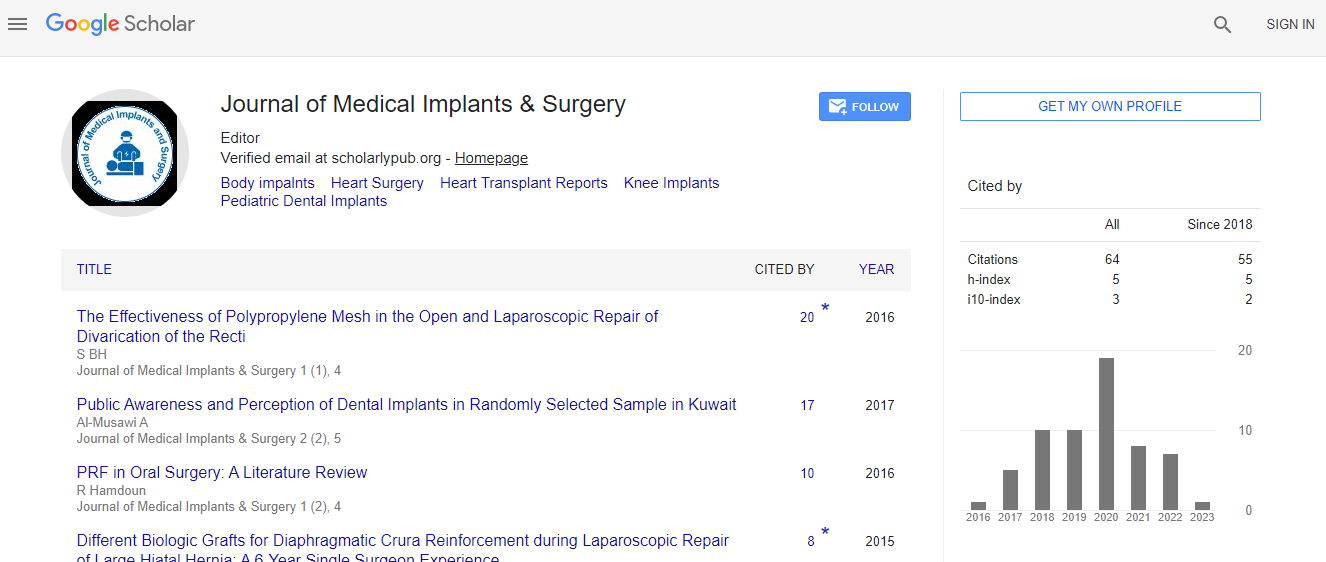Pre-Clinical Study: Regenerating autologous elastic cartilage for treatments of facial deformities using monkey auricular cartilage progenitor cells
Abstract
Abstract: Statement of the Problem: Regenerative cartilage has a great potential to solve the present problem of facial surgery though there are several problems such as safety, quality/shape/volume of cartilage and cost. We recently identified a promising regenerative method based on the xenotransplantation of human auricular cartilage progenitor cells to immunodeficient animals(Kobayashi, Takebe et al, PNAS, 2011)and the autotransplantation of monkey auricular cartilage progenitor cells to immunocompetent individuals (Kagimoto et al, Cell Transplant. 2016) to reconstruct self-renewing elastic cartilage, which may potentially be applied to patients with facial injuries and abnormalities. Today I will introduce our autotransplantation regenerative approach and the results. Methodology & Theoretical Orientation: We used 15 monkeys (Macaca fascicularis) and regenerated cartilage from their ear cartilage progenitor cells and autotransplanted them into their facial subcutaneous or submucosal legions to assume treatment surgery of present facial deformities. We monitored the transferred tissue using non-invasive magnetic resonance imaging (MRI), assessed it histologically, and measured the glycosaminoglycan (GAG) levels. The experimental animal protocols were approved by the Animal Welfare and Animal Care Committee of the National Institute of Biomedical Innovation (Osaka, Japan) (approval ID: DS25-32). Findings: No complications such as inflammation or tumorigenesis were observed in all cases. The shape and volume of the transferred tissue remained, and also detected by MRI images. The harvested tissue were histologically assessed as elastic cartilage as well as their primary auricular cartilage and GAG levels were close to primary one. Conclusion & Significance: These approach could regenerate self-cartilage safely and promisingly. However, it still has difficulty to control the shape and volume of regenerative tissue in our procedure. It might be necessary to add other methods such as 3D bioprinter to manage these problems as a next step.
Biography: Shintaro Kagimoto MD, PhD, a Japanese certified plastic and reconstructive surgeon and a certified regenerative medicine doctor at Yokohama-city university hospital, Japan. His speciality as clinical work is computer aided facial reconstruction for patients who have congenital or acquired facial deformity. He also conducts cartilage regenerative medicine / lymphedema research as a medical researcher. He got a PhD there about cartilage tissue engineering using monkey ear cartilage progenitor cell (S Kagimoto, 2016). He gained experience at Swansea University Medical School, UK as a Research Fellow from April 2019 to March 2020 and engaged in cartilage tissue engineering medical research using 3D bioprinters.

 Spanish
Spanish  Chinese
Chinese  Russian
Russian  German
German  French
French  Japanese
Japanese  Portuguese
Portuguese  Hindi
Hindi 